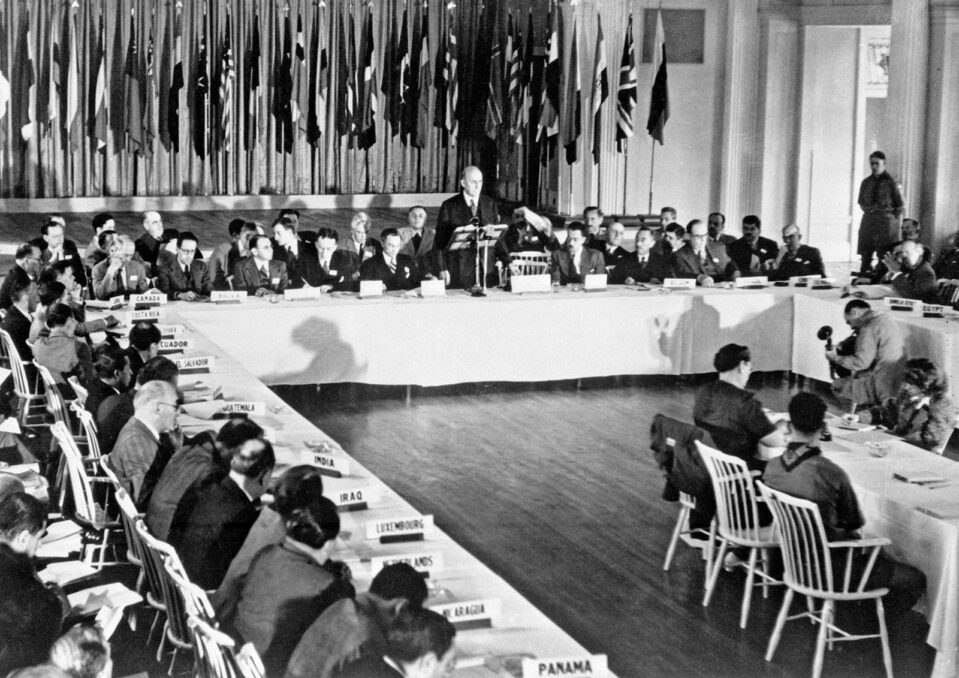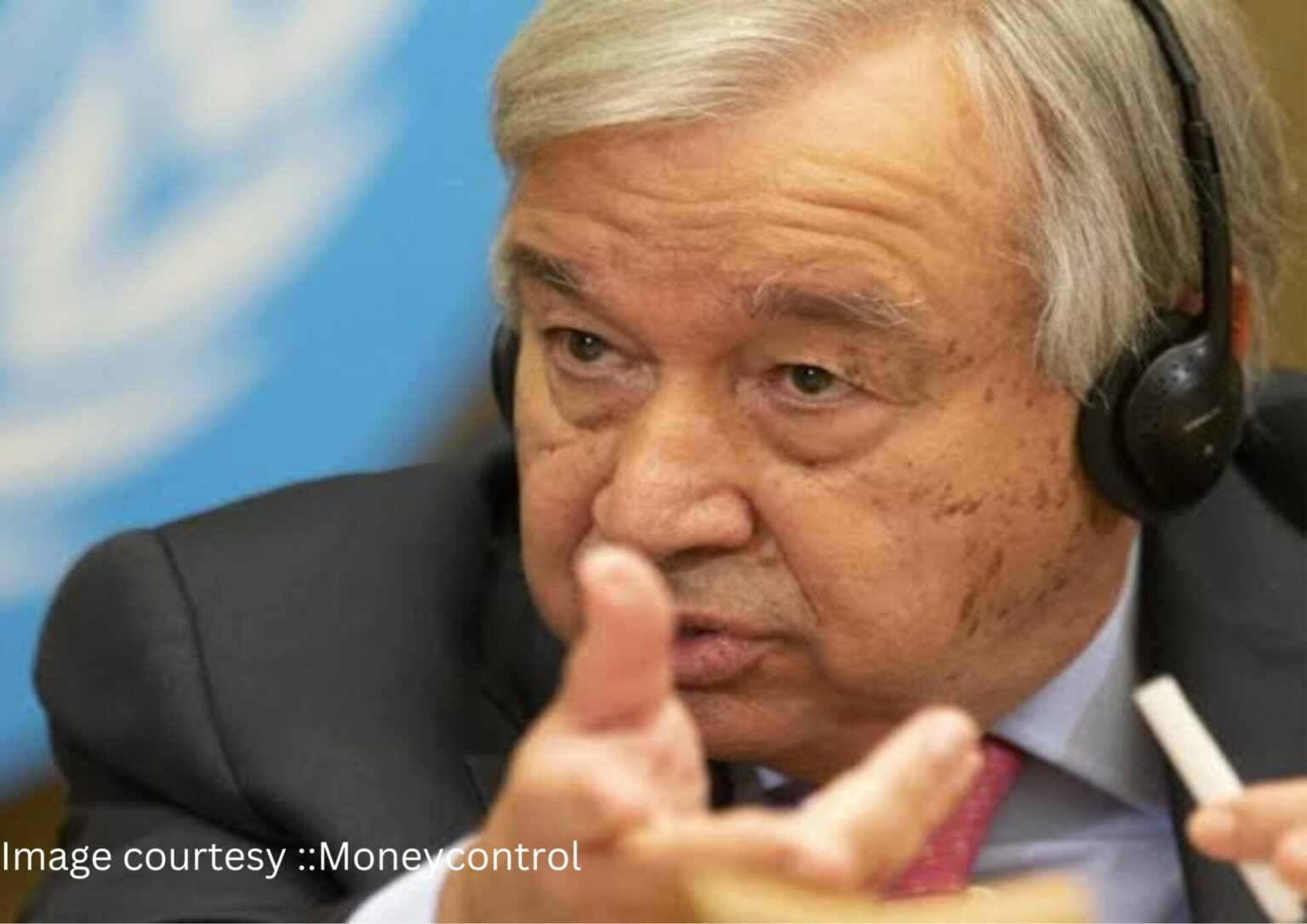
( Image courtesy : International day for disaster risk reduction)
During a press conference in Hiroshima, Japan at the G 7 or group of seven summits that represents the 7 largest economic powers in the world, United Nations Secretary-General and former Prime Minister Of Portugal Antonio Guterres expressed the need for reforms in the United Nations Security Council as well as in the system of Bretton Woods.
He expressed that both the systems that are still active today are reflective of the power dynamics of 1945 and that it was of grave importance that they are updated. He said that the institutions have failed in fulfilling their core function.Stressing more on the financial systems of the world he called them outdated, dysfunctional, and unfair.
The Security Council

( Image courtesy : Council on Foreign Relations )
Formed to secure world peace, the United Nations Security Council is the premier international peacekeeping institution of the United Nations Organisation. Vested with key powers such as approving changes to the UN charter, performing peacekeeping missions, and authorizing international sanctions, the Security Council plays a crucial role in maintaining world order.
The first meeting of the Security Council took place on the 17th of January 1946. The working structure of the Security Council includes 15 member states out of which 5 are permanent members with veto power. They have the authority to veto any resolution, or admission of new members and nominees for United Nations Secretary-General.
In the structure of the council, the five big powers of the post-World War era such as China, the United States, France, the United Kingdom, and the Soviet Union were made the permanent members. With only minor changes such as the Republic of China being replaced by the People’s Republic of China and the Soviet Union being succeeded by the Russian Federation, the power structure has remained almost the same.
With many key interventions in peacekeeping such as military intervention in the Korean War and Kuwait, Bosnia and Herzegovina, Namibia, Somalia, Rwanda, Sudan, Cambodia and the Democratic Republic of Congo the United Nations Security Council is the most influential institution in the world.
Bretton Wood System

( Image Courtesy : Britannica )
The Bretton Wood system is a system of monetary management that established the rules of financial and commercial relations among major economic powers. The system lead to the creation of the International monetary fund to ensure global financial stability.It was created in 1944 after the signing of the bretton woods agreement.It was the first agreement that governed the monetary policies between independent nations.The Bretton Woods system works by making sure of the convertibility of other national currencies to US dollar to within 1 % parity.
Possible Changes

( Image courtesy : Opinio Juris )
The Secretary-General pointed out that the United Nations Security Council was not representative of the current world power structure and thus it is possible that the permanent membership of the Security Council can be extended to some of the most militarily and economically powerful nations of the contemporary world.

( Image courtesy : Times of India )
1.India: When it comes to military power, India is the biggest importer of weapons in the world. Standing among the top 5 strategically powerful nations, India is also a nuclear nation alongside being the fastest-growing economy in the world.

( Image courtesy : The Indian Express )
2. Saudi Arabia: Saudi Arabia is the second largest importer of weapons and under the leadership of Crown Prince Salman, Saudi Arabia has risen to the position of great influence in the Middle East.

( Image Courtesy : Ministry of Foreign Affairs of Japan)
3.Japan: With an astonishing comeback after the world war, Japan serves as one of the strongest economies in the world as well as one of the top 10 most powerful nations based on military power. With growing threats from North Korea and a high possibility of an invasion of Taiwan by China, Japan’s position as a permanent member of the security council would be instrumental in diffusing tensions in the Asia-Pacific region.












